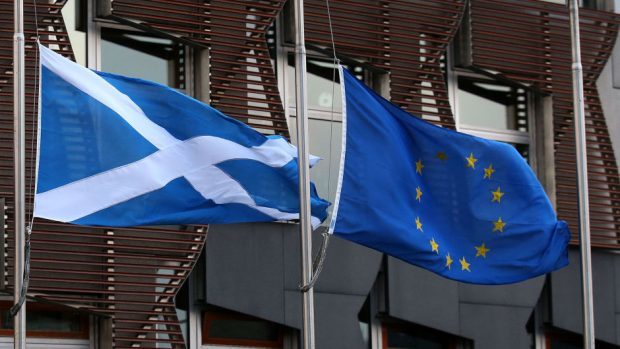European Union membership, access to UK and non-UK markets, and currency arrangements are key concerns for the Scottish farming community ahead of a second vote on Scottish independence.
According to the National Farmers Union for Scotland (NFUS), farmers and crofters were most concerned about those three issues in the run-up to the 2014 referendum.
Union president, Andrew McCornick, said farmer concerns were likely to remain the same however Brexit would add another dimension to the debate.
“In the event of a second independence referendum, we will formally engage with both campaigns, urge them to participate in any member events we organise but also, at an early stage, to map out their positions so that members are clear on the issues that matter to them,” said Mr McCornick.
He said the union would be consulting with its members in the next few weeks to establish their views on the issue.
Although NFUS remained neutral during the last referendum, a number of prominent farmers came out for and against independence.
Among the group in favour of independence were former NFUS presidents John Cameron, John Kinnaird, John Ross and Jim Walker.
They argued Scottish agriculture had been ill-served in EU negotiations by Defra ministers and having its own representation in Brussels would aid the sector.
The group against independence, named Rural Better Together and led by former NFUS presidents George Lyon and Sir Ian Grant, argued that independence would hinder the success of Scottish agriculture.
